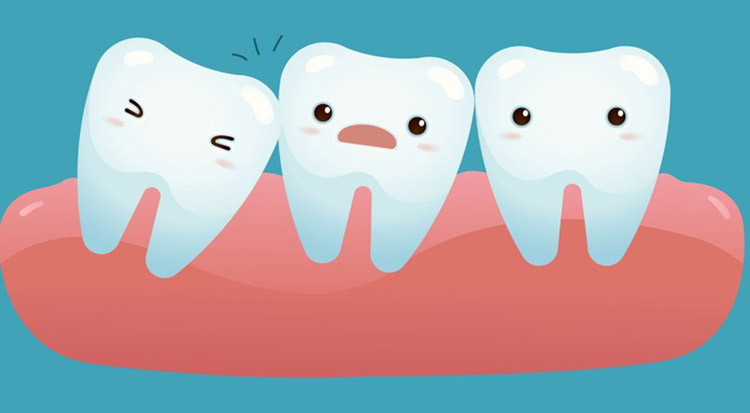Wisdom Teeth Extraction
Wisdom teeth are the last teeth to emerge, generally coming through between the ages of 17 and 25. It is estimated that 89% of the population will have one or all four wisdom teeth removed. For some, they develop without any problems or discomfort, but for others, they can create a range of complications and hence need to be extracted. The main problem is that they become impacted.
They emerge at an angle and don’t come through straight, either failing to emerge at all or only partially breaking through the gum. The impacted wisdom tooth will most likely be growing towards your healthy back teeth. The issue here is that the underside of our teeth is not protected, and the force of the wisdom teeth can damage perfectly healthy teeth.
.

Not all impacted teeth cause pain, alerting you to an underlying problem. Hence, we advise starting routine large X-rays of your jaws in your late teens and early twenties, so that we can detect any issues with the development of your wisdom teeth. It’s not always possible to predict if your wisdom teeth will cause problems in the future, which is why it is highly recommended to remove them at an early age rather than later. Removing your teeth later in life can result in a longer healing and recovery period.
Care After A Wisdom Teeth Extraction
For most people, recovery generally takes a couple of days. You might experience some slight swelling and mild discomfort. We strongly recommend the following for a speedy recovery:
- Rest at home after an extraction, regardless of whether it was a simple and easy extraction.
- Avoid alcoholic drinks.
- No smoking for at least the first 48 hours.
- You may experience pain, so opt for soft foods such as soups and smoothies.
- Drink plenty of fluids.
- Use an ice pack to reduce any swelling or pain.
- Keep up with your recommended pain relief and avoid aspirin, as it can cause more bleeding.
Here at MVDC, we take the utmost care to ensure you are comfortable throughout your treatment. There is no need to feel any discomfort during your procedure.
If you have any questions about your wisdom teeth extraction, please do not hesitate to contact us
If you have visited our Wisdom Teeth Extraction page you may be interested in reading more about our emergency dental treatments, tooth extractions, or restorative dental treatments.
Satisfied Patients
& growing every year
Wisdom Teeth Extraction FAQ’s


